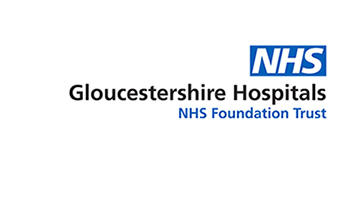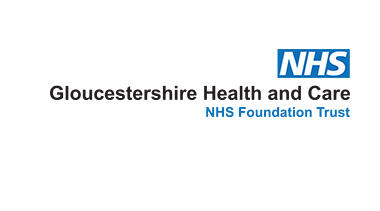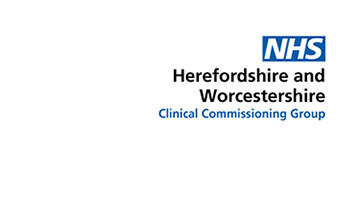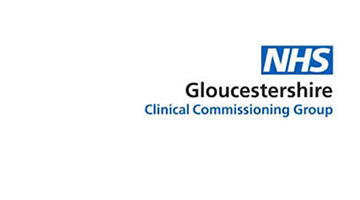The Three Counties Medical School serves the region where most of the University’s student population live: Worcestershire, Herefordshire and Gloucestershire, as well as the surrounding areas.
It is a genuine partnership between the University, NHS Trusts and Clinical Commissioning Groups (CCGs) in the region. The creation of the new medical school enhances the reputation both of the University and the regional hospitals and health sector that play a critically important role in its success. It also aims to make a significant contribution to the quality improvement programme of the regional health service.
Trust and CCG partners

Worcestershire Acute Hospitals NHS Trust
The Trust runs the the Alexandra Hospital (Redditch), Kidderminster Hospital and Treatment Centre, and Worcestershire Royal Hospital. In 2015, in partnership with University Hospitals Coventry and Warwickshire NHS Trust, it developed a £25 million state-of-the-art Oncology Centre, based at Worcestershire Royal Hospital, to provide local radiotherapy services to 1,500 patients a year who previously had to travel to be treated. The Trust performs about 95,000 planned and emergency operations each year, with 140,000 A&E attendances and about 500,000 outpatient appointments.

Herefordshire and Worcestershire Health and Care NHS Trust
The Trust delivers a wide range of services in a variety of settings, including in people’s homes, care homes, schools, community centres and in-patient facilities such as seven community hospitals and recovery wards. Established in 2011, the Trust is the main provider of community nursing, therapy and mental health services across the county. In April 2020, it also took over the delivery of mental health and learning disability services in Herefordshire. The Trust employs around 5,000 staff across the two counties. In 2017 it was named as a Global Digital Exemplar for Mental Health in the Next Steps on the NHS report, produced by NHS England as part of the implementation of the Five Year Forward View. It has been given up to £5 million of national funding to develop new digital systems to support mental health patients.

Gloucestershire Hospitals NHS Foundation Trust
Gloucestershire Hospitals NHS Foundation Trust is the largest employer in the county, with over 8,000 staff, and is one of the largest NHS Trusts in the UK. It provides a wide range of specialist acute services -including a regional cancer centre - from its two large general hospitals, Gloucestershire Royal Hospital and Cheltenham General Hospital, as well as maternity services at Stroud Maternity Hospital. Its specialist clinicians also see patients in the county’s community hospitals including Stroud, Berkeley Vale, Forest of Dean, Tewkesbury, the North Cotswolds and Cirencester. The Trust has developed ground-breaking services such as its Mobile Chemotherapy Services, and also provides a national lead in Diabetic Retinal Screening and AAA Screening Services.

Gloucestershire Health and Care NHS Foundation Trust
Gloucestershire Health and Care NHS Foundation Trust was formed in October 2019 from the merger of 2gether NHS Foundation Trust and Gloucestershire Care Services NHS Trust to provide joined up physical health, mental health and learning disability services. It is in the early stages of establishing a new community hospital in the Forest of Dean. The Trust employs more than 5,800 members of staff and works in partnership with a wide range of commissioners, collaborators and colleagues across the health and social care community. It provides assessment, support, treatment and advice on a range of mental health, physical health and learning disability conditions. These services are provided both in the community – in people’s homes and other settings – and in hospitals and inpatient units. Specialist services include Chat Health, which enables young people to obtain confidential health and wellbeing advice from the school nursing team via text message, Let’s Talk, an Improving Access to Psychological Therapy (IAPT) service and Hope House, a Sexual Assault Referral Centre in Gloucestershire.

Wye Valley NHS Trust
Established in 2011, Wye Valley NHS Trust is the provider of healthcare services at Hereford County Hospital, based in the city of Hereford, along with a number of community services for Herefordshire and its borders. It also provides healthcare services at community hospitals in the market towns of Ross-on-Wye, Leominster and Bromyard. The 3,000-strong workforce provides a range of specialist and generalist functions.
With a turnover of over £230 million in 2019/20, serving a population of 180,000, the Trust is one of the smallest rural District General Hospitals in England. The Trust is a member of a ‘Foundation Group’, created in 2017 in partnership with South Warwickshire NHS and George Eliot Hospitals NHS Trust (GEH). The three organisations face similar challenges and the group provides a wider platform to share strategic thinking, best practice and improve whole system patient pathways. A ward replacement project is underway at the Hereford County Hospital site, which will provide a new 72-bed ward block to replace the last of the two 1940s hutted wards, and is planned to open in 2021.

NHS Herefordshire and Worcestershire CCG
NHS Herefordshire and Worcestershire Clinical Commissioning Group was established in April 2020 following a merger of NHS Herefordshire CCG, NHS Redditch and Bromsgrove CCG, NHS South Worcestershire CCG and NHS Wyre Forest CCG. It has 83 GP practices and is responsible for buying health services for 800,888 people across Herefordshire and Worcestershire. With a £1.19 billion budget, the group plans and commissions hospital, community and mental health services. It also monitors the quality of the services provided and works with local partners with the aim of providing preventative and anticipatory care and seamless pathways across organisational boundaries.

NHS Gloucestershire CCG
All 74 GP practices in Gloucestershire are members of the NHS Gloucestershire CCG, which commissions NHS services to meet the needs of local people. Services include emergency care, operations or treatments that can be planned in advance, community services and mental health services. As well as commissioning services, CCG clinicians and managers at county and local level focus on planning, prevention and self care, joining up services, community support and the provision of information across health and social care. The CCG is also developing alternatives to hospital care, including more care, treatment and support at home and in the local community.
Download our brochure
Discover more about our plans for the future:
You can request a text only version by emailing communications@worc.ac.uk